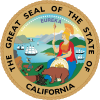| Road Repair and Accountability Act | |
|---|---|
 | |
| California State Legislature | |
| Full name | Road Repair and Accountability Act of 2017 Official Name
|
| Introduced | December 6, 2016 |
| Assembly voted | 54-26 |
| Senate voted | 27-11 |
| Signed into law | Yes |
| Governor | Jerry Brown |
| Code | Government, Health and Safety, Public Utilities, Revenue and Taxation, Streets and Highways, and Vehicle |
| Section | Government Code Health and Safety Code
Revenue and Taxation Code Streets and Highways Code
Vehicle Code
|
| Website | https://rebuildingca.ca.gov |
Status: Amended | |
The Road Repair and Accountability Act of 2017 (Senate Bill 1), also known as the "Gas Tax", is a legislative bill in the U.S. state of California that was passed on April 6, 2017 with the aim of repairing roads, improving traffic safety, and expanding public transit systems across the state. The approval of the fuel tax was for a projected $52.4 billion, or $5.24 billion per year, to be raised over the next 10 years to fund the state's infrastructure. The bill passed primarily along party lines, with most Democrats supporting the bill while most Republicans were against it. The bill passed with a vote of 27–11 in the Senate and 54–26 in the Assembly. According to California Department of Transportation, for maintenance projects on state highways, while providing funding to enhance trade corridors, transit, and active transportation facilities, in addition to repairing local streets and roads throughout California.[1][2]
2020 model year and newer zero-emission vehicles will each be assessed an additional $100 "road improvement fee" with the passage of SB 1, as the fuel tax would not be applicable to them. In addition to the funding provisions, the bill requires diesel trucks and buses over 14,000 pounds which were made before 2010 to be banned from operating in California by January 1, 2023.[3]
| Elections in California |
|---|
 |
- ^ LAO Transportation Brief - http://www.lao.ca.gov/reports/2017/3688/2017-transportation-package-060817.pdf
- ^ California Department of Transportation. "Important Events in Caltrans History". California Department of Transportation. Retrieved November 3, 2017.
- ^ "California's ban on around 70,000 vehicles takes effect this week". MSN. Retrieved January 5, 2023.
